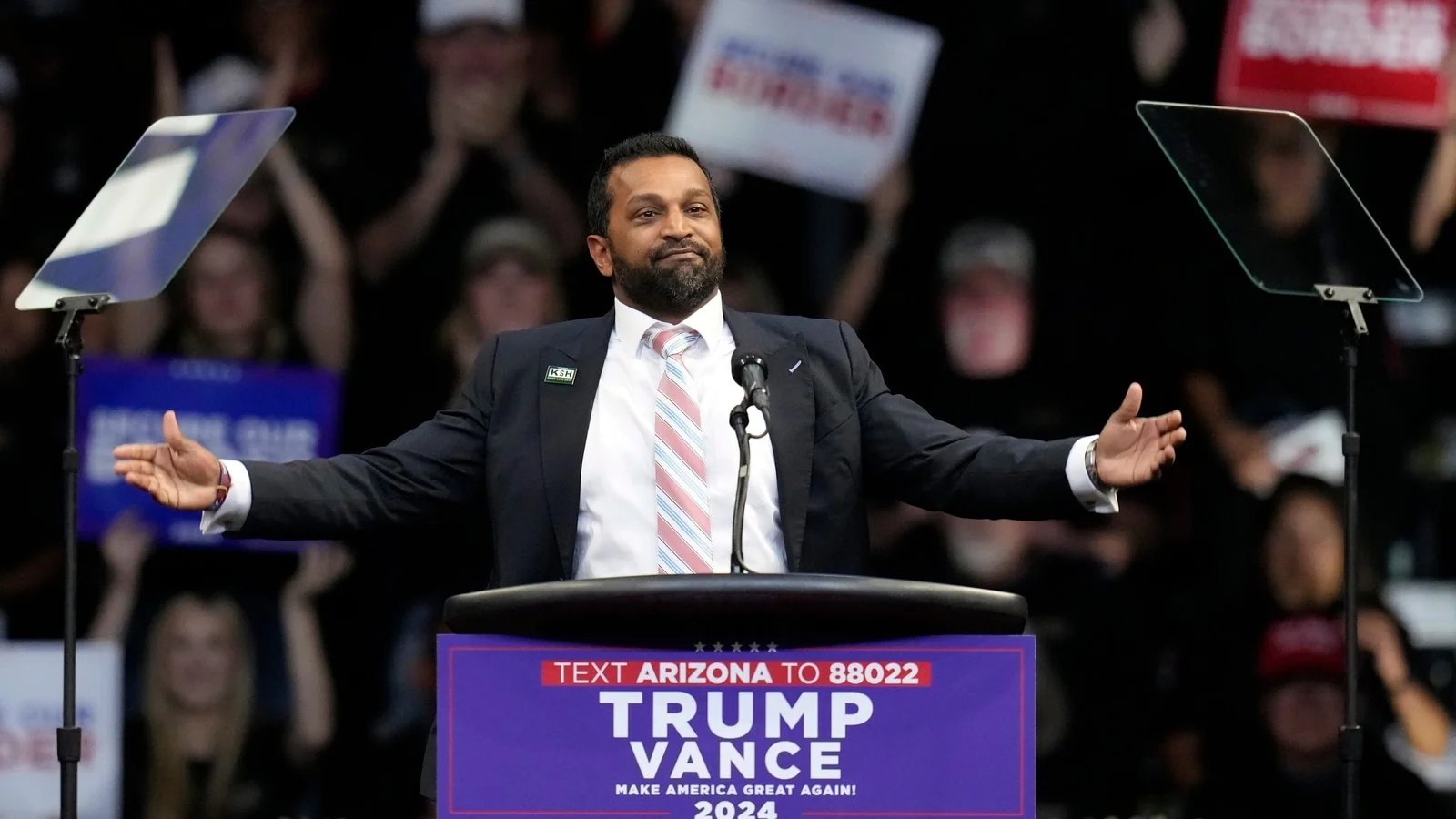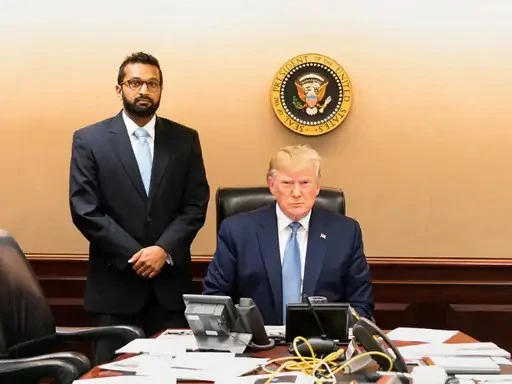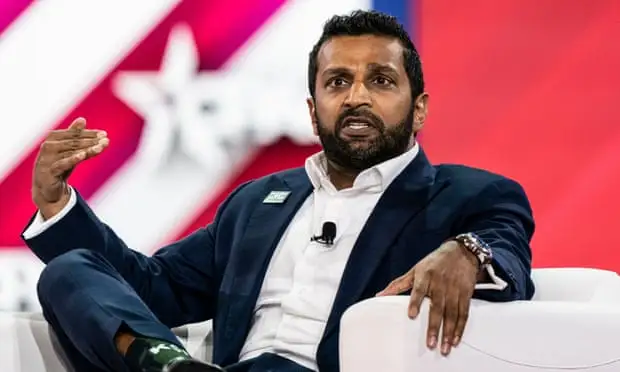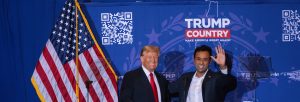(December 3, 2024) Former President Donald Trump has nominated Kash Patel as the next director of the Federal Bureau of Investigation. Announcing the decision on Truth Social, Trump described Patel as “a brilliant lawyer, investigator, and ‘America First’ fighter” who has dedicated his career to “exposing corruption, defending justice, and protecting Americans.” Patel, who is a staunch MAGA patriot and an outspoken critic of the FBI and the US Justice system, will be the first Indian-American to head the FBI if his nomination goes through. FBI directors are confirmed by the Senate and while Patel is likely to face some tough questions about political interference within the agency, several Republican lawmakers have now thrown their weight behind Trump’s pick, who has been vociferous about the ‘deep state’. If he passes the Senate’s trial by fire, he will replace Christopher A Wray, who still has three years left in his term. “Kash will get confirmed by the Senate. He is a man of honour, unquestionable loyalty, and an American patriot. Kash is the son of Indian immigrants who escaped Uganda’s genocidal dictator, Idi Amit. He WILL restore and uphold the rule of law, and the FBI will be premier again,” said Congressman-elect Abe Hamadeh on X. Other heavyweights within the legal system, like former federal prosecutor and representative Trey Gowdy, have also expressed their support. “We wouldn’t know about the Steele Dossier if it weren’t for Kash Patel,” Gowdy told Fox News.
The Global Indian‘s nomination marks the culmination of an extraordinary journey. Born to parents who fled Uganda during Idi Amin’s brutal regime, Patel rose through the ranks of federal service, from prosecuting terrorists to serving as Chief of Staff at the Department of Defense. Along the way, he became a prominent figure in counterterrorism and intelligence, playing key roles in reshaping national security policies and challenging institutional norms.

Kash Patel is President-elect Donald Trump’s pick for FBI director.
Early Education and Legal Career
Kash Patel initially wanted to become a doctor, a career path he soon abandoned after a college guidance counselor laid out the extensive time and effort required. “Acting like a stereotypical Indian American, I grew up wanting to be a doctor,” Patel recalls. “I took one look at the med school program and said, ‘Nope, I’m out.’” The counselor’s explanation of the long, grueling path ahead—years of medical school followed by residency—prompted him to reconsider.
Patel’s career pivot came unexpectedly when he worked as a caddy at the Garden City Country Club in Long Island during high school. There, he encountered defense lawyers who sparked his interest in law. “I didn’t understand exactly what they did, but being a lawyer seemed interesting,” Patel writes. This exposure led him to law school, and after completing his education at Pace University, he shifted to public defense, where he gained vital courtroom experience. “The most effective way to reach the right results is to have the right process,” he reflects on his time as a public defender.
After earning his law degree from Pace University and a certificate in international law from University College London, Patel faced the harsh reality of a competitive job market. He found that, as a fresh law school graduate, he wasn’t able to secure the position he initially hoped for in the federal government. “It wasn’t until I became a public defender that I truly understood what it meant to fight for justice,” Patel wrote.

He knew he wanted to be in law school but wasn’t thrilled by the idea of being a defense lawyer. However, it seemed the perfect way to climb the economic ladder, he writes in his book. “Instead of being a first-generation immigrant golf caddy, I could be a first-generation immigration lawyer at a white shoe firm making a ton of money.” With that, he cajoled himself into attending law school. Unfortunately for him, life didn’t quite pan out like John Grisham’s The Firm. He put in as many applications as he could, but top-tier law firms simply weren’t queuing up to hire him. “It was certainly humbling, he admits, but I think the universe was planning something much better by pushing me in a different direction.”
Finding his feet as a lawyer
Having been sidestepped by the glamorous ‘white shoe’ firms, Patel needed a new dream. He chose to be a public defender simply because he had enjoyed a class on trial litigation back in law school. It wasn’t much of a reason, but he reckoned it was “worth a shot.” That’s how Patel landed up in Miami-Dade, Florida, working at what he later learned was the top defense office in the country. He got the job and was learning from the best.
Even then, however, the shoe didn’t quite fit. In college, Patel’s politics had started drifting to the right, but when he began his career he found that public defenders aren’t “just left-wing; they are to the far left of the left wing.” He was disillusioned to see that tended to go soft on criminals, who had a ‘bad upbringing, or because they didn’t hurt the victims that badly’. However, despite these political differences, he loved his job. “I always cared about justice and wanted those who did good to be rewarded and those wrongdoers to be punished.” And, as a public defender, he learned life didn’t always work that way. Public defenders weren’t spirited superheroes who locked up criminals in prison and threw away the key; they were the ones who ensured ‘due process’. Less glamorous, maybe, but essential to keep the system in check.
After Miami-Dade, Patel spent nine years in the Southern District of Florida, where he “regularly stood toe-to-toe in the courtroom against federal prosecutors.” He took on high-profile cases, including one of the biggest narco-trafficking cases in the history of the district, where he reprented Jose Luis Buitrago, a Colombian accused of drug smuggling.
Counter-terrorism at the Department of Justice

After nearly a decade, which came with wins and controversies in equal measure, Kash Patel’s time as a public defender came to an end. He was then hired by the National Security Division in the Department of Justice headquarters in Washington DC as a terrorism prosecutor. “I had enjoyed my time as a public defender,” he writes, “But after nine years, I wanted to help convict terrorists the right way. And then there’s the fact that a job as a federal prosecutor at Main Justice is a dream job for a young and ambitious lawyer.
He began work in the winter of 2013, which was around the time when the world was beginning to hear about ISIS for the first time. His first case took him to Tajikistan for a case involving Omar Faraj Saeed al-Hardan, who was being prosecuted for working with ISIS. This was followed by the hugely sensational Benghazi attack, which claimed the life of US Ambassador Stevens. Patel was part of the team conducting a criminal investigation into the Benghazi tragedy, which he described as “a real-deal national security investigation created to assemble mountains of evidence.” As part of one of the US’ top special-ops teams, he was to help assist in the legal side of things for the US Special Operations Command.
Patel was recruited to the Donald Trump Administration as the Deputy Assistant to the President and Senior Director for Counterterrorism at the National Security Council, according to TIME Magazine. By then, he had also served as Chief of Staff to Christopher Miller, the then Acting Secretary of Defense, and as an aide to Devin Nunes, former California representative and House Intelligence Committee Chair. His time as an aide was during the FBI inquiry into alleged Russian interference in the 2016 presidential election.
According to TIME, Trump had even “floated the idea of Patel being the FBI’s deputy director.” This idea had been vetoed, and according to former Attorney General William Barr, who wrote in his memoir, One Damn Thing After Another, “Patel had virtually no experience that would qualify him to serve at the highest level of the world’s preeminent law enforcement agency.”
However, Patel maintained his close ties to President Trump, even after he left the White House. He also pleaded the Fifth and refused to testify against Trump before a federal grand jury during the investigation into Trump’s classified documents. However, he did go on to testify after being granted immunity by the Justice Department.
Kash will get confirmed by the Senate. He is a man of honour, unquestionable loyalty, and an American patriot. Kash is the son of Indian immigrants who escaped Uganda’s genocidal dictator, Idi Amit. He WILL restore and uphold the rule of law, and the FBI will be premier again. – Congressman-elect Abe Hamadeh
“Comprehensive housecleaning”
In keeping with the President elect’s plans to conduct a major overhaul of all federal organizations, Patel has always taken a hardline, critical approach to the FBI. In Government Gangsters, he writes, “The FBI has become so thoroughly compromised that it will remain a threat to the people unless drastic measures are taken.” Patel has even said that he intends to shut down the FBI headquarters and reopen them as a “museum of the deep state.”
From the young golf caddy who had no idea what he wanted from life to rising through the ranks of the justice system in America and becoming one of its most outspoken critics, Kash Patel has come a long way. Despite being a staunch American patriot, Patel has maintained his “very deep connection with India” and was raised a Hindu, a faith he continues to keep.
- Follow Kash Patel on X





